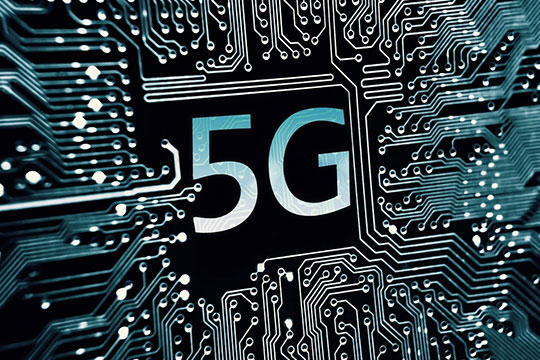TECHNOLOGY FOCUS
Quickly finding and eliminating defects in electronic devices is critical to all levels of the many businesses including ICs, PCBs, automotive, consumer, and IoT. This can directly affect technology development, manufacturing yield and time to market, reliability, serviceability, and client satisfaction. Many factors contribute to the achievement of high yield and reliability and significantly impact product performance and cost. A thorough understanding of product and technology reliability principles and mechanisms of failure is essential. A fundamental knowledge of defects and failure mechanisms enables the up-front achievement of these technology goals through circuit and layout design, device design, materials choices, process optimization, and thermo-mechanical considerations. Fault isolation, failure analysis, and materials analysis play a major role in the improvement of yield and reliability. Coordination of people in many disciplines is needed in order to achieve high yield and reliability. Each needs to understand the impact of their choices and methods on the final product. Unfortunately, very little formal university training exists in these critical areas of IC reliability, Fault Isolation, and failure analysis.


COURSE CONTENT
This course contans IC Reliability, Fault Isolation and Failure Analysis
WHO SHOULD ATTEND
This course will be of strong interest to engineers working in R&D, design, manufacturing, and reliability of automotive and consumer electronics, and IoT, as well as management, equipment service, and procurement.
It will be relevant both for companies producing integrated circuits themselves and for those involved as partners in the "fabless/foundry" model.

Due to Covid-19, and the uncertain travel recommendations for Autumn 2020, it is decided that this course is planned to run Online only. The daily schedule will be adjusted to fit remote training, with less hours per day divided into extra days. Make a preliminary booking and we will keep you updated.
Day 1 - KRISTOF CROES
Definitions and Overview of Failure Mechanisms
- Scaling Trends in IC's
- Yield, Quality and Reliability
- Lifetime, Failure, Degradation and Failure Criterion
- Failure Time Distributions
- Percentiles
- Accelerated Reliability Tests
- Acceleration Factors and Lifetime Models
- Overview of Failure Mechanism
Front-End-Of-Line Failure Mechanisms
- Time Dependent Dielectric Breakdown of Gate Oxide
- Bias Temperature Instability
- Hot Carrier Injection
Day 2 - KRISTOF CROES
Back-End-Of-Line (BEOL), Far-BEOL and Packaging Failure Mechanisms
- Electromigration
- Stress Induced Voiding or Stress Migration
- Time Dependent Dielectric Breakdown of Intermetal Dielectrics
- Chip Package Interaction
- 3D-related failure mechanisms: Reliability related to Through Silicon Via and stacking challenges
- Packaging-Related Failure Mechanisms
Day 3 AM - KRISTOF CROES
Reliability Methodologiess
- Reliability Evaluation Strategies
- FMEA: Failure Mode and Effect Analysis
- Statistics: Data Fitting Techniques
- Statistics: Techniques to Reduce Uncertainty in Reliability Predictions
Day 3 PM - DAVID VALLETT
IC Fault Isolation and Failure Analysis
- The role of Failure Analysis in Semiconductor Technology Development and Manufacturing
- Differing Failure Analysis strategies for Technology Development, Yield Analysis, and Reliability Engineering
- Client Support and Failure Analysis of Field Returns
- Analytical approaches for Package, Wafer, and Die Level failures
IC Failure Modes and Defects
- Electrical Failure Modes of Logic, SRAM, DRAM, and Analog/Mixed Signal Devices
- Defect Mechanisms in ICs and IC Packages
- Defects in Design, Processing, and Lithography
- Failures Due to Process/Product Interactions
- Test-induced Defects
Fault Isolation
- Electrical vs. Physical Fault Isolation
- Device Characterization
- Prerequisites for Successful Fault Isolation
- Overview of Methods
Electrical Fault Isolation
- Electrical Fault Isolation Purpose, Fundamentals, and Goals
- Time Domain Reflectometry (TDR)
- Electro-optical TeraHertz Pulse Reflectometry (EOTPR)
- SEM and Atomic Force Nanoprobing
- CV Analysis, Pico-current Imaging, Pulsed IV, and Electron Beam Techniques
- Success Factors - Measurement Resolution, Sensitivity, Accuracy, Reliability
Day 4 - DAVID VALLETT
- Physical Fault Isolation Introduction
- Physical Fault Isolation Purpose, Fundamentals, and Goals
- Overview of Thermal, Photonic, Magnetic, and Scanned Particle Beam Methods
- Sample Preparation for Physical Fault Isolation
Photonic Fault Isolation Techniques
- Photon Emission Microscopy (PEM)
- Optical Beam Induced Resistance Change (OBIRCH/XIVA/TIVA)
- Optical Beam Induced Current (OBIC)
- Laser Voltage Probing/Imaging (LVP/LVI)
- Light Assisted Device Alteration (LADA)
- Picosecond Imaging Circuit Analysis (PICA)
Physical Fault Isolation Continued
- Thermal Fault Isolation - Liquid Crystal Analysis, Lock-In Thermography
- Magnetic Current Imaging by SQUID (Superconducting Quantum Interference Device) and GMR (Giant Magneto Resistive) Sensors
- Electron and Ion-Beam Induced Current (EBIC/IBIC)
- Passive Voltage Contrast by Electron and Ion Beam (PVC)
- Atomic Force Microscope Based Physical Fault Isolation
- Success Factors - Measurement Resolution, Sensitivity, Accuracy, Reliability
Device Deprocessing
- Depackaging Techniques - Laser, Chemical, Mechanical, Plasma
- Wafer and Die Deprocessing - Polishing, Chemical Etching, Plasma Etching
- Focused Ion Beam Principles and Applications
Day 5 - DAVID VALLETT
- Physical Imaging
- Optical Microscopy
- Acoustic and X-ray Microscopy/Tomography
- Scanning and Transmitted Electron Microscopy (SEM/TEM)
- Scanned Probe/Atomic Force Microscopy (SPM/AFM)
Materials Analysis
- Basics Materials Analysis Methods for Chemical Composition and Morphology
- Particle Beam Interactions in Solids
- Bulk Composition Analysis: Energy and Wavelength Dispersive Spectroscopy
- Principles of Electron, Ion, and X-ray Techniques: TEM, AES, SIMS, XPS, and TXRF
- Sensitivity and Resolution Comparisons
- Technique Selection Factors
Practical Applications and Future Challenges
- Case-histories and Examples: Time-resolved Photon Emission Movies of Operating Devices; Nanoscale 3D X-ray Tomography Virtual Sections; Defects; Fault Isolation Results, etc.
- Planning for Analysis to Maximize Effectiveness
- Scaling and Material Challenges in Analytical Science
Said about the course from previous participants:
"The energy and enthusiasm of the lecturers - all of which, I suspect, put a lot of effort into keeping their courses fresh. Course was very comprehensive with stress being placed on the relevant topics, sufficient to obtain a very good overview from reliability right through."
"Open discussions, discussions about problems of my colleagues, meeting colleagues from other companies (networking), teachers giving examples from their work."
"Variety of topics, good explanation skills of the Instructors, huge experience of Instructors."
"Teachers did know their areas!"
"Well-organized, approachable presentation, supply of dense information, openness for questions and discussion, platform for exchange with professionals in related functions."

